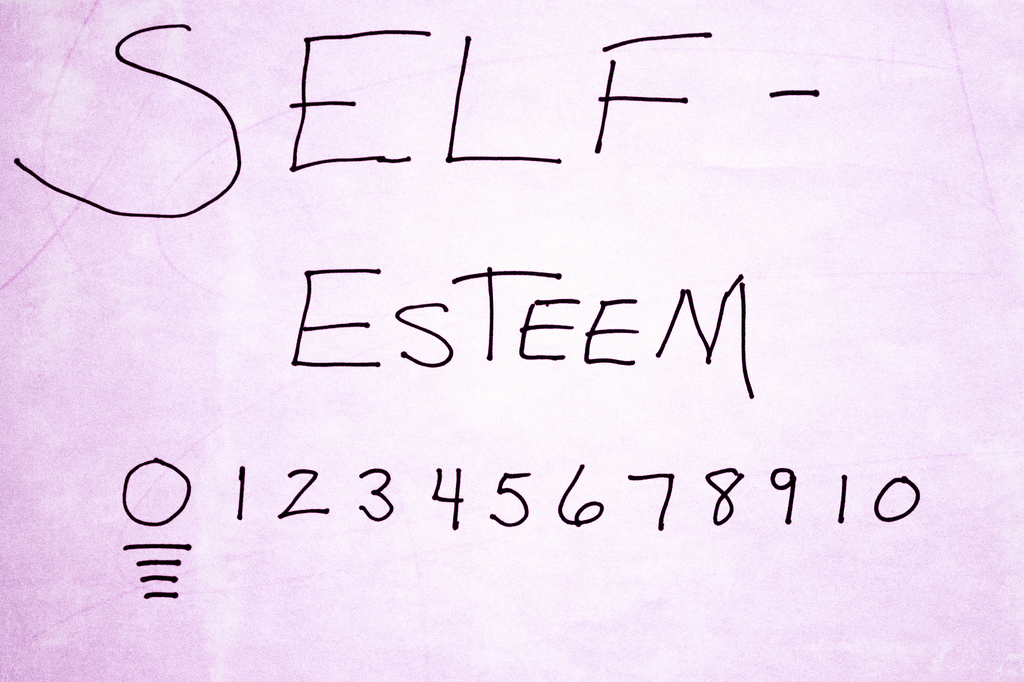Growing Up Online: Why & How I Care About the Comments

This post contains graphic discussions of bodies and pornography. TW for body image issues.
I can’t pretend that some of my reasons for engaging in the comment sections aren’t personal.
I first hopped online when I was just over a decade old. As I had been socialized almost exclusively among other Muslims, the Internet was my chance to interact with people who resembled the mean and mode in American society far more than my family and community did. Had I stayed a good Muslim girl, what I learned online about gender and sexuality would have affected me very little. Instead, I left Islam and began to navigate the world of dating and sex with the assumption, courtesy of the comments, that I was so physically repulsive, any male attention would be a boon.
Because almost every body type can be found depicted in a sexualized fashion online, the Internet is often hailed as a great sexual equalizer. It is far from so for those uninterested in seeking out visual sexual imagery. I fell into that camp; accordingly, whatever I saw in the way of porn was a video or picture link that I encountered on non-porn sites.
I am a child of the much-maligned self-esteem-obsessed 1990s. Jean Kilbourne had made her Killing Us Softly presentation at my school, I had heard Oprah talk about loving yourself, and so on. Despite all that, I fell for the Internet’s version of the beauty myth. I failed to apply media literacy to what I saw online since what I read did not represent The Media. No one was trying to brainwash me into thinking that I wasn’t beautiful so that multinational corporations could sell me stuff, the commenters were men directly informing me of their desires.
Of course, there is nothing wrong with people expressing their sexual desires. The problem was that they didn’t stop at “she’s hot” and instead defended their lack of interest in the women they found unappealing with incredible vitriol. Their vicious verbal evisceration of images of women whom I found to be impossibly attractive led me to wonder how exactly I could hope to be found beautiful by anyone but my mother. Any dissent from the overall opinion of women was so rare that, out of all the things I saw in the hours and hours I spent online, I can remember the specific instances when it occurred.
In two words, I learned that what straight men physically craved in women was not me.
Convinced that I had to compensate for my utterly flawed body, I paid attention to the most-repeated complaints that straight men made of straight women. As was the case with my exposure to porn, I did not seek out the information as much as stumble upon it during my usual Internet use. The consensus in the comments was that women are invariably terrible for a variety of reasons and the only reason to bother with them is their sexual desirability. Although my own experiences directly contradicted many of the things the men said about women, I resolved that no man would ever complain about me like that. After all, with my inadequate body, what else did I have to recommend me to a man? It took me years to even realize that I had such a hot mess of internalized misogyny entangled in my brain, let alone that I ought to rid myself of it.
My particular extenuating circumstances are certainly not common. Being young, naive and online, however, is a situation that grows more common by the day. Whenever someone tells me that it’s not worth the effort to provide a dissenting voice to a shitty opinion on a mainstream website, I relay the implicit message back to my teenage self and her current-day compatriots:
No one’s time and energy, even in the small amount that is required to drop off a comment, is worth your coming to understand that what is said here is not the only way of seeing things.
This is not to say that I recommend that everyone get on YouTube or any of the other more mainstream yet vile places and engage in ceaseless debates with obvious trolls. Lowering yourself to the level of the lowest common denominator can affect life outside of the comments there, and not in a good way. What I do advocate is, at the very least, a drop-off.
Whenever I can, I drop off a simple “no,” “that’s not always true,” or pointed “for you” into comment sections dominated by unquestioned yet horrid opinions. By this, I mean that I make as reasonable (and pointed as well as funny, if I can manage it) of a comment as I can muster, downvote a few things, and leave. This isn’t due to some vague hope that the asshole I’m responding to will suddenly have a change of heart thanks to a single comment, it’s so that the kids following along at home know that the opinions they’re reading are, at the very least, not quite unanimous.







This is an interesting argument. I generally find commenting on posts to be time-consuming, and frequently emotion-consuming as well. So I do it rarely, and mostly in safe (to me) spaces. But there are maybe 2 hot-button issues that I take much more personally – welfare is one – and I could probably say more on those issues, especially on certain sites I stumble upon.
Commenting online is a pretty major investment, even when the site allows me to log in (I’m looking at you, Skepchick, which seems to be really finicky these days!). To comment when I haven’t fully thought about the original post, or the comment to which I am responding, risks saying something embarrassingly point-missing. To comment when I feel my opinion is going to contradict those of most of the other commenters seems to prompt me to say things way more forcefully than I should (an instinctive desire to exaggerate my position in the hopes of being heard). To comment and then have a number of people respond with hostility feels, for me, almost worse than this happening in person, since I can’t quickly remedy the miscommunication (if that’s what it was). When I know my comment is fair, carefully thought out, and well expressed, then I spend way too much time checking back to see what other commenters say in response. And if I ever find myself reading comments that are almost universally bigoted, I get seriously depressed, and my throwing in a single comment to try to show that other points of view exist increases the impact those majority comments have on my precarious belief that the world isn’t horrible. It’s kind of like picking up other people’s trash on a favourite nature walk – it’s good to do it once in a while, but it absolutely increases my ability to be bothered by the trash when I walk there because responding to it makes it less ignorable.
All this is to say: I very much admire your willingness to comment when bigots seem to be dominating the conversation. But I see it as heroic, and not something that I am capable of doing very often.
I agree with what you are saying about the time to take commenting to a hateful person. First I read what they say, then I ‘carefully’ read what they say. I comment and before I post what I hope is a thoughtful comment, I read what they said again. It is so time consuming and what if you miss the point. Back to the drawing board. Did I assume that the original commenter said this or that? Back to reading the original comment. For me this has helped me in real life to be much quicker with words and get to the heart of the matter in problem solving.
For some of the reasons stated here, I started recently commenting and am aware of my posts on facebook. I am quite aware that I have 15 nieces and nephews, most of them are on facebook and I am the only aunt/uncle/parent regularly/daily/hourly online. It is easy to update what my kid is doing and allowing the muck of very closed minded religious friends and family. I know it can seem like I am a pain in the butt, but I respectfully challenge hateful talking and as a woman, ensure that most of my posts do not talk about the joys of motherhood. (Not that I don’t consider my daughter a pleasure, but most of what she says and does is not cherished and I don’t want my nieces and nephews thinking that this is what having a family is about.) I check self hate online with as much compassion (no preaching) I can muster and when appropriate send personal messages to accompany those facebook comments. I think my friends and family want to know that someone cares and will support them through life’s up and downs. Occasionally there will be someone I piss off, but I feel it is worth it. I believe this has lead me to having a better relationship with my friends and family. Recently, I have even learned of a couple of atheists/nonbelievers in my family. I thought I was alone. There is SO MUCH BAD CONTENT on the internet and the thought that friends and family perpetuate it makes me a little sick. I think the key to commenting on facebook is TRYING to maintain being respectful.
I’m becoming active in the Fat Acceptance and Health At Every Size movements, and for the reasons listed here, I am a big fan of Ninja Commenting: Get in, get out, ignore the rest. Body-hatin’ trolls are fierce.
Moniqa has IMHO the right idea. How about making up a standard post like the below sample which you then copy and paste from a text file as a reply to as many hateful posts as possible in forums likely to be stumbled upon by people like the 10 year old Heina? This minimizes the time spent on counteracting the kinds of comments which evidently can do real harm to real people.
“This comment reveals the commenter to be a hateful troll. Anyone feeling distressed or diminished by this post should be aware there are billions of your fellow humans who do not share these disgusting attitudes. Some of these people can be found at skepchick.org“